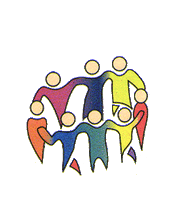|
"We live in a culture of two-year olds." Those who have more direct experience of me and my work have likely heard those words directly. I hold a strong bias that our culture does not produce capable, grounded and balanced adults. Indeed, our culture demands perpetual childhood (or adolescence at best). We have not been given the skills of the adult, have few role models for adult behavior and no sense of how to respond to emotional distress, adversity or challenge without thinking, feeling and behaving as a child. Psychotherapist John Lee refers to this process as regression...I might quibble with this term as I, sadly, see most of us resting in this state rather than regressing to it. Nonetheless, John's approach to grappling with the phenomenon marks him as a true kindred spirit and I greatly value his wisdom and persepective. These video clips are definitely worth 30 minutes of your time.
1 Comment
What are you aware of? Right now as you sit in front of the screen you are reading this on? Whatever it is, hold it for a moment and take a breath. Don't change it or modify your experience. Simply honor it and breath. Notice what happens. Does the awareness blossom? Retreat? Hold steady? Say to yourself, “I am aware of...” Fill in the blank with your experience. Now notice if a story is emerging. For example, I am aware of the pressure at the tips of my fingers as they make contact with the keyboard. I notice a story starting to emerge about the force with which I tap the keys and as I sit with that, a vague sense of “am I doing it right?” As I sit with that, the story begins to expand beyond typing and I turn my mind elsewhere. But what if I stayed with the story. What if I gave it my attention and followed the chain of awareness as it emerged. What might I learn about myself? What am I afraid of? Where does your chain of awareness take you?
 We are bombarded with information at all times of the day and night. Social media, newsfeeds, emails (personal and work related) all clamor for our attention. Yet how we engage with such shapes our daily experience. Particularly valuable are the first minutes of our days. Do you roll out of bed and immediately connect to the online world? That may be a mistake. The first 15 to 30 minutes of our day sets a tone. Imagine awakening, stretching, enjoying a warm beverage, breathing deeply and connecting with yourself or a partner, engaging with some light exercise. Grounding yourself in the day. How different is this from rubbing the sleep from your eyes while scrolling through a twitter feed? How might that shape you as you move into the faster paced world of obligations and demands? How we begin often shapes how we end.  I'd like to begin a semi-regular exploration of practitioners and theoreticians that I have found invaluable in the formation of my work and worldview, in service to the idea that psychotherapeutic counseling be something that seekers participate in rather than simply consume. Many of my influences and the general approach I bring to the work of therapy are sadly uncommon in these days of managed care and brief solution focused programing. I have no illusion that I can reverse such trends, but I do believe that I can better highlight how my work differs and why that may be of value to clients I work with. First up is Dr. RD Laing a Scottish psychiatrist who wrote extensively on mental illness– in particular, the experience of psychosis. Laing's views on the causes and treatment of serious mental dysfunction, (strongly influenced by existential philosophy) ran counter to the psychiatric orthodoxy of the day (and continues to appear even more radical today) by taking the expressed feelings of the individual patient or client as valid descriptions of lived experience rather than simply as symptoms of some separate or underlying disorder. Laing's work has been crucial in informing how I approach the politics and practice of psychotherapy and how I choose to engage with clients. The following is a trailer for a delightful documentary titled “DidYou Used To Be RD Laing?” The Wikipedia Entry on RD Laing Biography from the Society for Langian Studies Quotes from RD Laing So what have I taken from the work of RD Laing? In the most simplistic of statements, I'd say it is the foundational belief that that psychotherapy is a co-creative experience of connection between two human beings rather than a "cure" for the sick offered by the all knowing expert. Today’s post will be brief as duty calls me elsewhere. However, I’d like to take a moment to return to the physical (a favorite topic). I can’t stress how important engaging with our physical bodies is for emotional wellbeing. We are physical creatures immersed (for the most part) in an incredibly sedentary, non-physical daily experience. Now, more than ever, it is important to compensate for this by moving, stretching, and breathing. This need not be extreme. It need not involve a gym or a trainer or the expenditure of anything but time, motion and a little sweat. Move yourself! You just might be surprised at how it feels.  I constantly hear folks say things like “I tell myself it shouldn’t matter…” or “I told myself that wasn’t the best way to respond…” Very rarely, however, do I hear folks say “I listened to myself…” We’re wonderful “shoulders” ready, able and willing to beat ourselves up all day long for what we should or shouldn’t be doing or have done, great advice we ignored, how we botched a conversation, event or what-have-you. We’re not such wonderful listeners, skillfully tuning into our senses or inner dialogue in an honoring, supportive manner. I invite you to break this pattern. Take a moment, right now, to draw in a slow, deep breath. Exhale and really sink into your body. Feel your posture, the weight of your body in its chair. Notice any sensations that may arise. Don’t try to change them or judge them as good or bad. Just become aware of them. Then say (either aloud or in your mind) “If I were to honor myself fully right this moment I would…” and allow the sentence to complete itself with whatever arises. What arises need not be logical (or “good” or “bad”). Don’t second guess. Simply allow the sentence to complete itself. If it remains incomplete, no problem, just repeat the process. Eventually something will arise. Now—here’s the radical part—allow that sentence to be enacted, if at all possible (or strongly consider the message if action is inappropriate). Need to sit up straighter? Leave the office and walk around the building a time or two? Spend a moment stretching? Call a loved one? Love yourself? Get a drink of water? Cackle incoherently? Quit your job? End a failing relationship? I have no idea what you need to do. Or what the consequences would be for honoring your inner voice. But I’m very confident that you do or that you will find out. If only you’ll take the time (and risk) to listen. Communication…it ain’t always easy. Many is the couple I work with who, in the early days of navigating new ways of being, begin to attack each other with “therapy speak”. Needs are confused with wants. Thoughts confused with feelings. And the result is an argument as ferocious as ever before, ummet needs and resentment.
It's important to avoid the trap of using empowered communication as a weapon instead of a tool. For example, knowing that someone has just spoken a judgment is a poor excuse to proffer a judgment in return! Doing so will likely create an unmet need in them, which (ironically) is likely to be thrown back in your direction as a further judgment, and the only benefit you'll have gotten out of empowered communication is to have intimacy crippling arguments encased in thinly disguised psychobabble. The challenge shifts to a focus on process instead of on content. Yet the experience of dissatisfaction remains the same. Truth speaking is most powerful when all elements of one's truth are revealed. This is true vulnerability. It may be easy for me to scream, "You're so arrogant, you never let me speak!" It may be more challenging for to assert "I feel angry because I'm not being given a chance to respond to what you are saying." But it's likely most challenging to put the whole of my truth out there: "I'm afraid that you will dismiss what I'm about to say and I don't want to be dismissed. I feel angry because it seems like there's no space in this discussion for me to respond to what you are saying. I want you to hear me and I want o hear you. If we can't hear each other I don't know ho we will overcome this. Will you take a breath and really hear me?" The idea in this is not necessarily to change your "bad" words to something "good". Nor is it to change your partner from someone "bad" who won't listen to someone "good" who will. The idea is to change your experience so that you are able to experience more contact with yourself and your partner. In contact there is a greater opportunity for you to communicate with one another as equals and to speak from that place. No more, no less. To listen is to tolerate, while to hear is to take in. Do you hear those you care about? Do they hear you?  It is a refrain of mine that skillful humanistic counseling is far too potent to reserve solely for those in a state of crisis. I believe that well timed therapeutic counseling interventions can assist all of us in navigating challenging experiences, find meaning in difficulty, navigate what previously seemed unnavigable and emerge from the experience stronger, wiser, and more connected to ourselves and those around us. And of course, for those suffering from unusually strong, diagnosable mental and emotional distress, psychotherapeutic counseling can likewise be a tool of transformation. But what happens when the human experience itself becomes pathologized? The newly released DSM-5 (that would be the 5th edition of the Diagnostic and Statistics Manual of Mental Disorders produced by the American Psychiatric Association) has been released and, since January of 2014, is being used by clinicians across the country in diagnosing mental health disorders in the general public. As per the criteria of the DSM-5, it is believed that about 50% of U.S. Citiznes could be diagnosed as “mentally ill” at some point during their lifetime. Are you experiencing grief at the death of a loved one? Is your child throwing tantrums three or more times per week? Are you over eating? Do you experience PMS? Are you experiencing chronic yet difficult to diagnose pain? An affirmative answer to any of the above can now add you to the ranks of the mentally disordered. When the common experiences of life (death and loss, sadness, common anxiety, pain etc.) become pathologized, it impacts not only the very functional, yet temporarily distressed person experiencing such, but takes vital resources away from those truly struggling in the depths of unusual mental and emotional malaise. Dr. Allen Frances—who chaired the task force committee for the previous version of the DSM (the DSM-IV ) and author of Saving Normal: An Insider’s Revolt Against Out-of-Control Psychiatric Diagnosis, DSM-5, Big Pharma, and the Medicalization of Ordinary Life states, “Funding for mental healthcare has already been cut in many states, and many people who are mentally ill or even suicidal aren’t getting the help they desperately need.” Yet the American Psychiatric Association has dismissed DSM-5 opponents as overly alarmed. "All the good epidemiological studies unfortunately show that one in five people have a psychological disorder. ... They're prevalent, they're just all over the place, and that's very disturbing to some people," said Dr. Carl Bell, a Chicago psychiatrist and University of Illinois School of Medicine director of public health and community psychiatry. However, Dr. Joel Paris, professor of psychiatry at Mcgill University and author of Prescriptions for the Mind: A Critical View of Contemporary Psychiatry counters this view, stating, "The DSM-5, in many ways, reflects the politics of psychiatry these days...Everybody has a kind of investment in certain diagnoses. Those who are studying a particular disorder often are saying, 'Well, this is much more common than you think they are. Oh, the prevalence is very high.' But we risk losing legitimacy because of over-diagnosis...The fact is that most people get by with bad patches in their lives. They recover." And it is to this sentiment that I turn. All of us will experience emotional challenges and difficulties in our lives. Some more than others. We live in a profoundly fractured and all-too-frequently alienating society. Yet to pathologize the human experience itself strips the very meaning from our lives. It is through challenge and difficulty that character is built and strengths emerge. In extremely challenging situations, supplementation and pharmaceutical medication have their place, I'm not denying it. However, when the common experiences of human life become pathologized, then the meaning of what it is to be human becomes muddy and unclear. And when we are medicated in an effort to insulate ourselves from the common pains of human existence we threaten the very core of what makes us human. The only “winners” of such a zero sum game are those who stand to profit from the over diagnoses of our times. Being a human being in the 21st century isn't easy. Therapeutic counseling is a tool that can be utilized to assist in moving through the confusion and disquiet of difficult emotional times and a great boon to personal growth and human potential. Never doubt it. But overpathologization need not be a criteria. You are a free, whole and wondrous entity. Never doubt that, either!
I have made the conscious choice not to work with the managed care (ie. insurance) industry in my practice. While sometimes frustrating to new clients, this was not a poorly conceived choice but, rather, a decision made after long and careful deliberation on my part. As we shift into 2014 and the true emergence of the Affordable Care Act, I wanted to take a moment to offer some clarification as to why I have decided not to accept insurance from my clients in favor of a fee-for-service model.
My goal is to assist others in empowering themselves and coming into greater contact with the world around them. I have invested significant time and energy in my training and personal development in order to be the very best I can be at offering my services. Yet, far too often, clinicians working in the managed care system are expected to provide only the minimum of care to clients and to complete treatment in ridiculously short periods of time (at times only being authorizing to conduct six to eight treatment sessions). In addition, managed care staff often seek extremely detailed and intimate information about clients and the content of psychotherapy sessions in order to approve (or deny) treatment. This information is entered into a computer database, the security of which is beyond my (or my client’s) control. I have deep concerns that this deeply personal and confidential information can easily be available to others within and beyond the managed care organization, shared with other insurance companies, or even sold to (or hacked by) unrelated parties. Case in point, the federal government and insurance industry has developed a national database of medical and mental health records, in which your managed care records are stored. Regardless of intention or regulation, there is no way to tell how the information from the national data bank will be utilized. I habor concerns that client information could be used for the benefit of health or life insurance companies or employers who are highly interested in any history of information about your health so that they can protect, manage and assure their own future profits and interests. Most managed care companies do not allow individual clients the freedom to choose their doctor or therapists. Instead, they require you to choose from a list of pre-approved providers. In the realm of psychotherapy such providers often qualify for managed care panels only if they agree to provide short term care (perhaps as short as one to three private sessions), are willing to accept low fees for services, agree to share confidential client information with the managed care entity, and are willing to give up control of clinical decisions to administrators and CEO’s rather than their own skilled judgment. Because of this, I have chosen to work beyond the bounds of the managed care world. I endeavor to keep my fees as reasonable as possible, in order to provide quality and compassionate services to the men and women of my community. In decades past, psychotherapy was a deeply creative, at times radical, re-imagining of human well-being, growth and potential. Therapists and clients engaged in a rich dance of vulnerable uncertainty, balancing trust and risk-taking in a creative and idiosyncratic push for change, insight and growth. However today’s therapies are, sadly, far too lacking in such elements. Rich Simon, editor of Psychotherapy Networker notes, “Today's treatment is more and more shaped by predetermined DSM categories and empirically validated, standardized treatment protocols from which deviation isn’t welcomed, if even tolerated. Part of the reason is, of course, that old bugaboo—the power wielded by insurance companies, who eye any treatment approach or idea that strays off the reservation with deep suspicion or outright rejection. But another part of the problem is that we live in cautious times with heightened concerns about HIPAA guidelines and confidentiality, making it much harder to actually see therapists at work who inspire us to push the boundaries of the familiar and show how to engage clients with a spirit of daring and invention." My practice is dedicated to a reclamation of what therapeutic counseling was, and again could be: A radical, compassionate, growth promoting opportunity for individualized personal change, insight and relief from the alienation and neurosis that sadly plagues our experiences in the modern world free from the dictates of corporate and governmental interests. My clients deserve (and generally demand) no less. Remember: Cheaper Is Not Always Better. Managed care may offer a lower financial cost upfront, but, as outlined above, you may be paying a high price behind the scenes. Consider Paying Out-Of-Pocket For Your Psychotherapeutic Counseling. Your emotional health and well-being is too valuable to leave in the hands of managed care for-profit companies or governmental agencies. Demand that what you disclose in therapy remains private. Education. For additional resources, visit the National Coaltion of Mental Health Providers and Consumers at www.thenationalcoalition.org  In times of stress and uncertainty, as we rush from one indoor location to another, it can be easy to become “ungrounded”—to lose that deeper connection to ourselves and that which supports and nourishes us. When we are ungrounded we tend to feel anxious, depressed or uneasy. Often, it is hard to put a finger on what is “wrong”. There are many ways to ground and center ourselves at such times. Taking a deep, slow breath and scanning our bodies is a start. Beginning at the top of your head, be aware of the physical sensations present, then slowly guide your awareness down through your body…your face, neck, shoulders, arms, chest and back, hips, legs and feet—simply pay attention as you scan. And breathe. What do you become aware of? This isn’t about changing anything, it’s about connecting with yourself. When you reach your toes, take an extra moment to bend your knees slightly and, with a slow, deliberate breath, gentle bounce up and down for 20 or 30 seconds. Allow the bounce to be soft and rather subtly. Imagine that any anxiety or unwanted sensations are being knocked loose from within you and falling to your feet where they are expelled into the ground. Another manner of grounding connects you, not only internally, but externally but assisting you in re-linking with the land that ultimately supports you. When climate permits, take off your shoes and socks and head out-of-doors. Walk on the bare earth…feel the grass under your feet, or mud squish between your toes. Breathe. Really allow yourself to experience the sensation of being connected to the earth. Imagine your stress, your worries and cares are draining down through your body and pouring out the soles of your feet into the ground and descending downward even further, where they are released and composted into something else. A third method of grounding that can be utilized during times when the climate (or your comfort level) won’t allow you to walk about barefoot, is to approach a tree. Approach with awareness and respect. Breathe (see a theme here?). Pay attention to your physical experience as you come closer to the tree. Again, there is no need to change anything, simply be aware. Reach out and place your hands on or around the tree trunk (that’s right, I’m encouraging you to hug a tree). Pay attention to the feel of the bark under your hands and the sense of contact between yourself and the tree. Then give your attention to what cannot be seen. Visualize the inner world of the tree, the delightful way in which it is rooted into the landscape and the marvelous and efficient manner in which it’s deep roots draw sustenance from the earth. Lean forward against the tree and once more breathe deeply. Imagine your feet sprout roots that dig down into the deep layers of the earth as well. As you breathe, imagine the power of the land is being drawn upward into the soles of feet and then fills your whole body with relaxed power. Allow this visualization to continue for as long as feels appropriate, then allow the image to fade. See the roots from your feet draw up into you once more. With a final breathe, give thanks and go back about your day. These three exercises can be done individually or together as your time and desire allows. However you have engaged with them, be sure to pay attention as you go back about your day? Has you experience of anxiety or unease shifted? Let me know! |
AuthorBryan Dieterich, MA, LPC Archives
March 2020
Categories
All
|
 RSS Feed
RSS Feed
